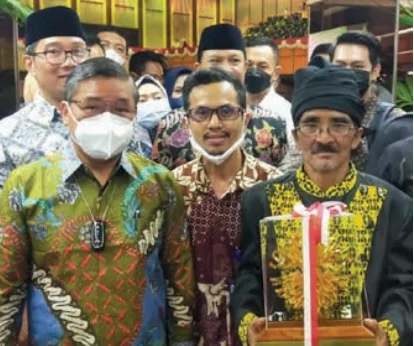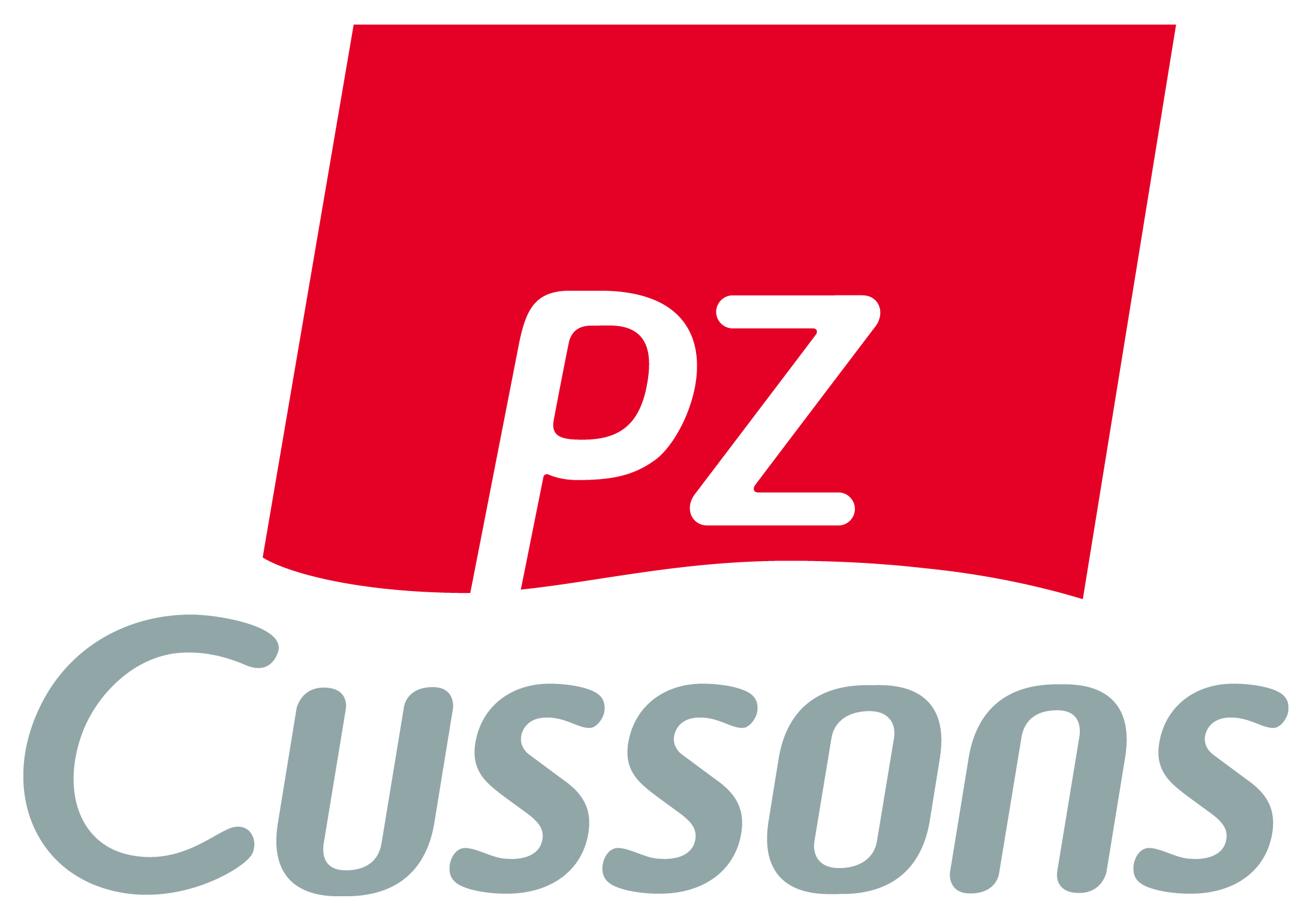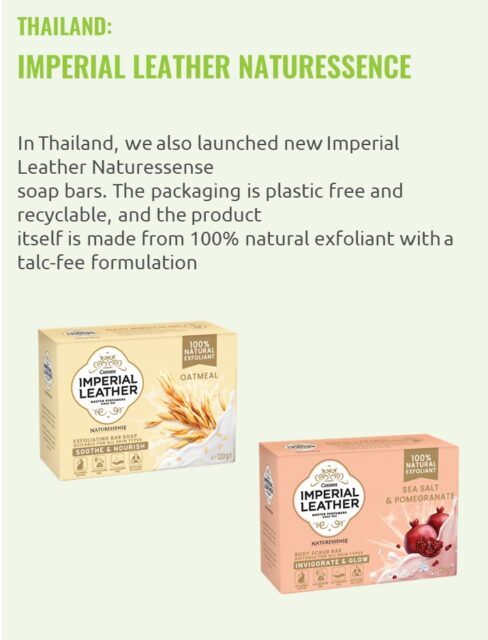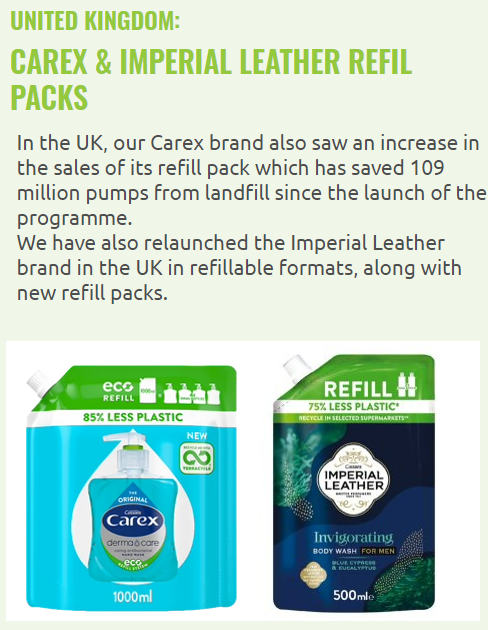We measure, manage and report our performance in the areas that we know are most important to the business, and where we have the biggest impact. This includes carbon emissions, water usage and landfill waste, plastic consumption and disposal, and the sustainable sourcing of palm oil and paper.
Plastic and packaging
The packaging agenda is high on our list of priorities. The need to reduce our packaging footprint is as important as it is challenging.
We have established targets which reflect our portfolio and business strategy and our desire to move away from plastic and explore opportunities beyond plastic.
Another significant packaging material that we use is paper. We have been implementing measures to ensure the proportion of certified or recycled paper that we use grows each year. Certified paper means that all materials used come from responsibly managed, certified forests, such as FSC, PEFC or equivalent certification. Using recycled materials makes the most of precious forest resources and reduces the pressure to harvest more trees. Using certified or recycled paper mitigates the risk of the material originating from unacceptable sources.



Carbon and climate
Reducing carbon emissions is a priority for our business. Through our continuous improvement programme in our factories and facilities, we continue to incorporate energy reduction initiatives across our sites. We have set ambitious carbon reduction targets for the business, reflecting our ongoing commitment to addressing the climate crisis.



Our operations in the UK, Australia, New Zealand and Indonesia are now carbon neutral through a combination of increasing energy efficiency, moving to renewable electricity and purchases of Gold Standard VER carbon offsets.
We have measured our Scope 1 and 2 emissions (direct emissions associated with our operations and the energy we purchase) for several years. We are working on plans to reduce these in line with science-based targets by 2030.
We have conducted a comprehensive Scope 3 measurement, looking at our extended carbon footprint to identify pathways for carbon reduction and determine how we will achieve our ambition to be carbon neutral by 2025 and net zero by 2045.
We continue to build our understanding of the footprints of our individual products so that we can apply the learnings to other products. To this end we have joined the EcoBeauty Score Consortium which aims to develop an industry-wide environmental impact assessment and scoring system for cosmetics products. We continue to participate in the Carbon Disclosure Project (CDP), reporting on our climate-related initiatives.
Waste
We aim to reduce the amount of solid waste sent to landfill year-on-year, and all our factories and locations have waste reduction programmes in place. We study and map our landfill waste and then use a standard waste hierarchy tool to identify improvement actions, which are implemented via our continuous improvement programme.

Water
Reducing the amount of water we use is important. We have a continuous improvement programme in place to ensure we are using it effectively. We participate in the Carbon Disclosure Project (CDP), reporting on our water-related initiatives.

Biodiversity
We purchase and source raw materials that, in some cases, impact on biodiversity and forests. Our most significant purchases are paper-based materials and palm oil. We have made commitments on both areas.
Reaching our palm oil target means using producers that do not contribute to deforestation, peat or exploitation (NDPE). We continue to monitor our performance using Starling satellite data and strive to improve our performance by working with partners like Earthworm Foundation as well as supporting the Forest Conservation Fund with investment in conservation projects in Indonesia which are helping to secure standing forest, protect biodiversity and reduce carbon impacts in our supply chain.


Our 2023 Palm Oil Action Plan focuses on supplier engagement, transformation and independent verification. We aim to publish our progress annually and our mill list every six months here.
We participate in the Carbon Disclosure Project (CDP), reporting on our forest-related initiatives against Palm and Paper commodities.
INDONESIA:
WORKING WITH THE MULUI COMMUNITY TO CONSERVE INDIGENOUS HABITATS.
We continue to support the Forest Conservation Fund’s work in supporting the Mului community in Borneo, Indonesia, through investing in conservation which secures forests, protects
biodiversity and reduces carbon impacts in the areas where we source.

In 2018, the Mului Customary Forest was established. The Mului community was given a formal certificate of land title allowing them to manage their ancestral land. Following the success of this project, in FY23 the Mului Indigenous community received the Kalpataru Award from the Indonesian Ministry of Environment under the ‘Environmental Rescuers’ category. The project has inspired shared learning surrounding the recognition and protection of Indigenous Peoples and their forest conservation in the East Kalimantan province.
We will continue to support the Mului people’s conservation activities, in alignment with our commitment to building a deforestation-free palm oil supply chain. This will include continuing to support community patrols that protect the forest from illegal logging, poaching, palm oil extraction and forest fires, as well as biodiversity monitoring. The Forest Conservation Fund will also support the development of forest-friendly businesses that ensure the community has a thriving and food-secure future.
PZ Cussons representatives met with representatives from The Forest Conservation Fund, the Head of Perancit Forest and the village head of Penai in East and West Kalimantan. PZ Cussons also donated a number of products to the Mului community in FY23.






